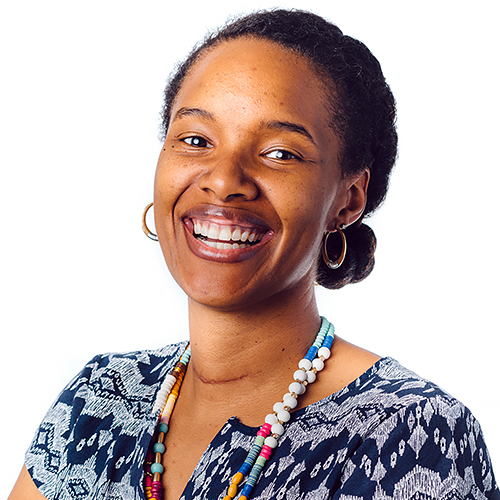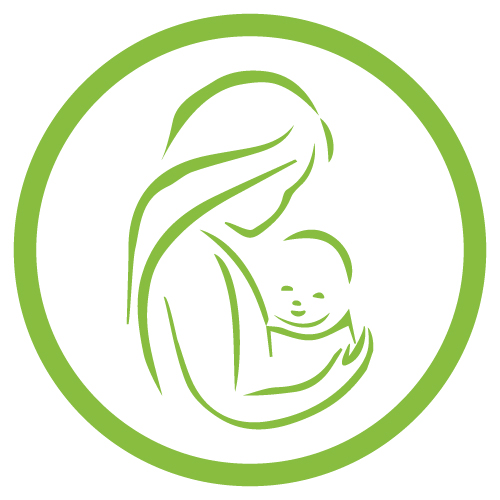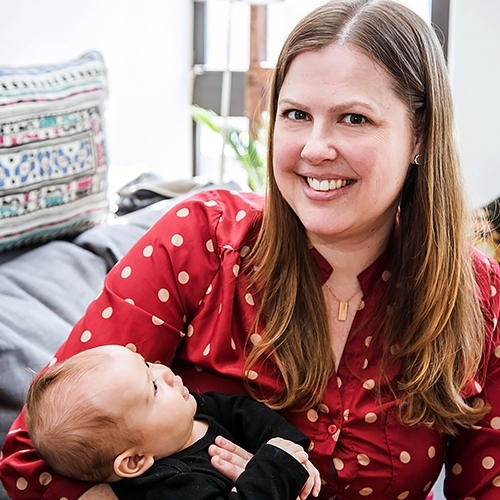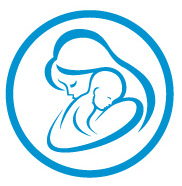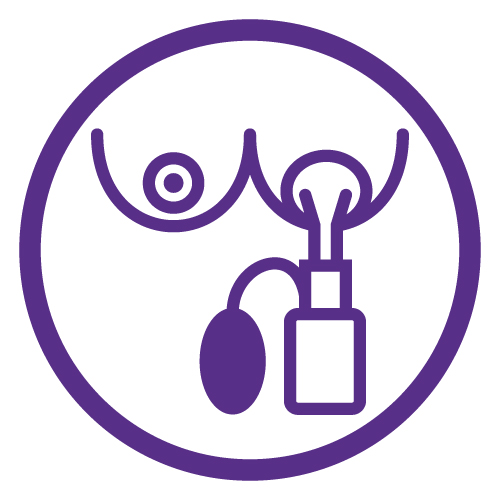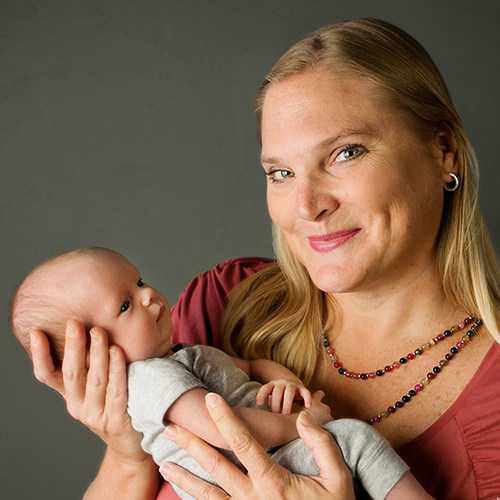
The Crying Curve and the Impact on Postpartum and Breastfeeding

A love for babies fueled Kimberly's 20+ year career serving families in the postpartum time frame. With a passion for nurturing new parents, she trains doulas and educators with CAPPA to support and educate for a strong beginning of bonding and connection. She loves teaching expectant families to have a smooth transition to new baby life through the Providence Healthcare System in Portland, OR. She began as a postpartum doula, then quickly added breastfeeding and new parent classes to help parents from the very beginning, and then became an IBCLC to meet their bigger challenges. She owns ABC Doula & Newborn Care in Portland, OR, is the mother of 2 grown kids, and resides in Phoenix near her parents. Like many other baby whisperers, Kimberly has honed skills for listening and responding to babies that parents can quickly learn to understand and interpret their tiny humans. When she sees parents struggling, and especially with the most fussy of babies, her heart hopes that all parents could be given the tools to compassionately support their little ones, and learn how to meet their needs, which creates more confidence in themselves in their new roles as well.
Topic: Understanding Infant Crying - [View Abstract]
The Crying Curve is an evidence-based pattern of crying that begins at about 42 weeks of gestation (2 weeks of extrauterine life), peaks at 6-8 weeks of age, and sharply declines by 12-15 weeks. As many as 15 different studies have concluded that this pattern is common across infants of all cultures, gestational ages (based on a 40-week gestation), and parenting styles—and the applications are many in the early parenting world. How can parents use this pattern to help them navigate breastfeeding? How can they gather their support people, family or village to maximize positive relationships and get the support they crave? How can they utilize it to help assess their newborn and understand what is needed for their specific situation? How much crying is too much crying? Lactation consultants, postpartum doulas, and other postpartum professionals who possess this information are well positioned to help to educate parents on how to best approach their postpartum recovery period, as well as navigate the ups and downs of breastfeeding and early newborn sleep. This session will aim to explain and apply the Crying Curve in multiple ways to support and guide the newborn family.
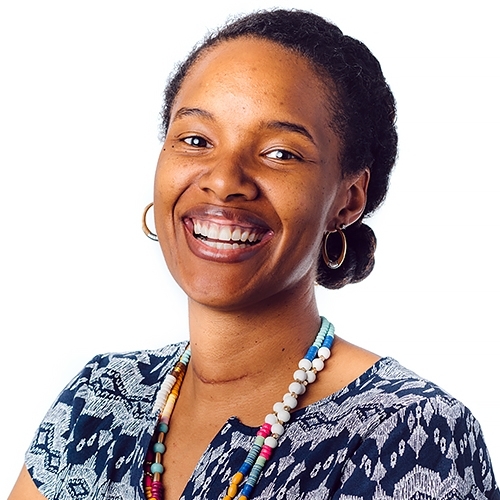

Nikki Hunter Greenaway is a board-certified family nurse practitioner and internationally board-certified lactation consultant in New Orleans, Louisiana. In 2011, she founded Nurse Nikki Family & Maternity Services, a health consulting firm where she educates and counsels women, families, schools and businesses about pregnancy, birth, postpartum, breastfeeding, and new baby care. October 2018 she opened Bloom Maternal Health, a women’s health clinic that provides prenatal counseling and postpartum recovery care. Nurse Nikki is the co-founder of Louisiana’s first free-standing infant feeding clinic, the New Orleans Breastfeeding Center. She also co-created Café au Lait Breastfeeding Circle for Families of Color and Nikki & Nikki Lactation Career Consultants two important resources needed to improve breastfeeding outcomes specifically in the Black community. Nikki is a wife and mother of 3 mini breastfeeding activists.
Lactation consultations delve into perfecting a latch, maximizing milk supply and even recovering from giving birth. Very few visits discuss how breastfeeding can affect intimacy. The research on breastfeeding and intimacy is scarce and the assessment tools and evidence-based solutions are almost nonexistent. Perinatal providers often don’t recognize the relevance or have time to troubleshoot the inquiries. Lactation specialists understand that the situation exists but may not know how to approach the line of questioning or how to provide solutions. This webinar will illustrate the relationship between lactation-specific hormones and sex hormones. It will present the mental and physical struggles that families face when tackling the topic of returning to intimacy when breastfeeding. Providers and lactation consultants will receive recommendations on how to approach, assess and assist in resolving clients’ perceptions and concerns surrounding breastfeeding and intimacy. Discussion will offer web resources and how to add the topic into community resources.

The Effects of Stress On The Mother-Baby Dyad

Elissa is a passionate osteopath, business owner and mentor.
Elissa has worked as an Osteopath in private practice in Melbourne since graduating in 1998.
She started her own multidisciplinary clinic in 2002, combining osteopathy with, massage, naturopathy, kinesiology and counselling. In 2015 Elissa merged her business with a local podiatrist and started The Balwyn Health Hub.
She is well known for her treatment of children and pregnant women although her patient base also includes a strong focus for; the family unit, the elderly, performers, athletes and the chronically ill. Her special interest in osteopathic diagnostic reasoning often helps patients understand why chronic dysfunctions are not healing.
Elissa's passion for working with pregnant women, babies and children allows close professional relationships with lactation consultants, midwives and doulas which has led to her guest lecturing at a number of multidisciplinary conferences.
The stresses faced by each new mother will reflect her unique experience of conception, pregnancy and birth and these stresses can significantly influence the mother-baby bond. Even the most well researched birth plan can be subject to variations and complications that will inevitably put additional stress on the mother. Difficulty breastfeeding is often one of the first signs of stress on the mother-baby unit; it’s success or failure can drastically influence the early bonds made between the dyad. The neuroendocrine system has many ways of responding to these stresses and knowledgable manual therapists have an opportunity to support both the mother and baby towards optimal physiology.
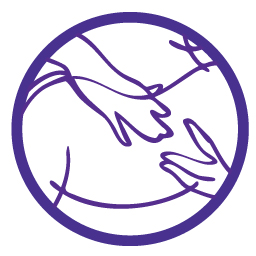
View Details / Enroll

The Elephant In The Room - Bleeding Post Tongue-Tie Division

Sarah is a Registered General Nurse, Health Visitor, International Board Certified Lactation Consultant and Tongue-tie Practitioner with a busy private practice based in Cambridgeshire, UK. Sarah is a founder member and former Chair of The Association of Tongue-tie Practitioners and has written a book for parents and professionals, ‘Why Tongue-tie Matters’. Sarah lectures nationally and internationally on infant feeding and tongue-tie.
Topic: COVID-19 and Implications for Tongue-Tie Division in Infants - [View Abstract]
Topic: Is This a Tongue-Tie: How Do We Decide? - [View Abstract]
Topic: The Elephant In The Room - Bleeding Post Tongue-Tie Division - [View Abstract]
This presentation explores professional and lay perspectives on bleeding post tongue-tie division. It will examine what constitutes abnormal bleeding and why this may occur. Risk assessment and reduction will be discussed. Management strategies that have been found to be effective, along with the development of guidelines on bleeding by the Association of Tongue-tie Practitioners will be described.


Maria Caterina Cattaneo is a psychotherapist with a psychodynamic orientation and EMDR practitioner. In the 90s she accumulated a large experience in the field of the clinical psychology of the developmental age, both in public hospitals (Child and Adolescent Neuropsychiatry department in Lecco, and a collaboration with the department of Neonatal Pathology in Monza), and in the Scientific Institute Eugenio Medea in Bosisio Parini, where she has also done research on depression in children and adolescents, giving an important contribution to the Italian version of the Achenbach CBCL (4-18) . For several years she worked on the protection of minors (at the department of Social Services of the city of Monza) , conducting diagnosis and microanalysis of highly conflictual couples, and support groups for parents. Besides her free practice, since 2006 she has been coordinating the project on “When birth becomes crisis”, a collaborative project between the departments of Neonatology and Neonatal Pathology of the Maternity Hospital Mangiagalli in Milan and the Consultorio Familiare “Genitori Oggi”and , since the last year, in the Humanitas Hospital PioX. The clinical activity consists of psychological work in the maternity wards, inside the Hospital, and, when needed, therapeutic intervention with mothers or fathers , couples or mother - infant bonding at the Perinatal Psychology Unit, founded in 2006 at the same hospital. Since 2008 she has started the research activity of the Unit on the prevention of post-partum depression; some results of this research have been published in international journals, and have been presented at several AISMI conferences, while others are in the process of publication. In the last years she has started, with her collaborators, a new research project based on the use of EMDR in perinatal psychology, implying the preparation of two new protocols on delivery trauma and problems concerning breastfeeding.
After childbirth, between 3 and 9% of women develop trauma-related symptoms characterized by a constant state of alert as if the danger was still ongoing. This can include intrusive memories / intrusive images, sleeping disorders and signs of dissociation. Puerperal women may experience a sense of inadequacy and / or impotence. If untreated, these peri-traumatic issues can affect the mental and physical health of the mother. The follow-ups of a birth trauma can also lead to significant impairment in the construction of a secure prìmary relationship between the mother and the baby {the basis of the subsequent attachment bond). A secure attachment, on the other hand, is a protective factor against possible psychological and psychiatric problems in childhood, adolescence and adulthood. This presentation will will provide an introduction to the use of Eye Movement Desensitization and Reprocessing (EMDR) as a treatment for birth trauma and how it may be clinically applied in the maternity ward.

The Ethics & Realities of Forced Cesarean Surgery

Jen Kamel is a VBAC strategist, national speaker, and founder of VBAC Facts®. VBAC Facts was born out of her own frustration as a cesarean parent attempting to understand the medical literature and political barriers surrounding VBAC. Her mission is to increase VBAC access through educational programs, legislative action, and amplifying the consumer voice. She envisions a time when every pregnant person seeking VBAC has access to unbiased information, respectful providers, and community support so they can plan the joyful birth of their choosing in the setting they desire. She travels the country presenting her signature program, “The Truth About VBAC” and speaking at various regional and national conferences, including Human Rights in Childbirth, DONA International, and the Indiana Midwives Association. She has testified multiple times in front of the California Medical Board on the importance of VBAC access and is a board member for the California Association of Midwives.
Are women forced into cesarean surgery? How is this possible? When does it happen? Why does it occur? And what do forced/coerced cesareans really look like? This session will explore the extreme disconnect between medical evidence, national guidelines, ethical responsibilities and the current maternity care system. We will focus on the role of hospital “VBAC bans” which restrict access to vaginal birth after cesarean and mandate repeat cesarean as well as the public health fallout of such policies. We will review how forced cesareans can occur in the face of national guidelines that denounce them while professional ethics simultaneously affirm and honor the autonomy of the pregnant person. Finally we will close with how we can turn the tide, create change, and improve the care our clients and children will ultimately receive.
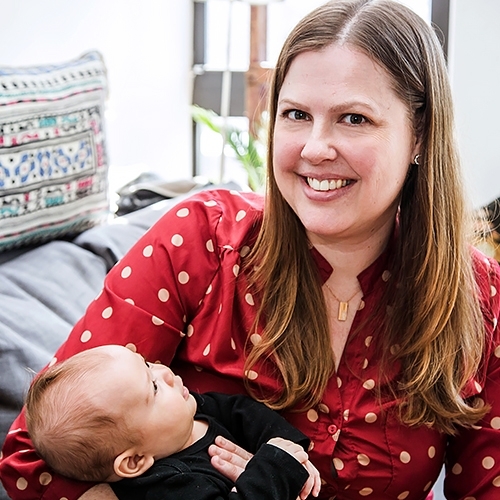

Annie Frisbie has been an IBCLC in private practice since 2011. Her background is in media, where she worked very closely with producers, content developers, and tech thought leaders on business strategy, content development, contracts, legal clearances, and more. She has also produced training for professional media software solutions as well as created and managed print and video content for media professionals.
In 2018 she was honored with the US Lactation Consultant Association's President's Award, "awarding those that demonstrate extraordinary service to the association and profession."
She is a produced screenwriter and proud member of the Writers Guild of America, East. She have a BA from Franklin and Marshall College, and an MA in Cinema Studies from New York University. In a previous life I was a film critic. I live with my husband and our two children in Queens, New York.
Topic: The Ethics of Digital Privacy and Lactation Practice - [View Abstract]
As healthcare providers incorporate technological solutions into their practices, they also face the increasingly complex task of protecting the privacy of their patients/clients. Some countries have laws in place that healthcare providers need to understand and follow, but all healthcare providers regardless of practice setting have an ethical responsibility to maintain rigorous standards when it comes to digital privacy.
Because technology changes so rapidly, keeping up-to-date with privacy regulations proves challenging for both large institutions and solo practitioners. Lactation must also be concerned with the privacy of more than one entity while serving a patient base that may have already faced numerous privacy and consent violations during pregnancy and childbirth. By valuing the privacy of lactating persons and their children, legal, ethical, and moral obligations can be met, enhancing client/patient autonomy and improving self-efficacy.
This session provides a framework for understanding digital privacy and privacy threats, and offers resources for implementing policies and procedures that protect patient/client privacy.

The First 1,000 days: Promoting Infant Mental Health

Monica Roosa Ordway, PhD, APRN, PNP-BC is an assistant professor at Yale University School of Nursing where she teaches community health in the Graduate Entry Prespecialty into Nursing and Masters programs. Her research interests include the assessment of psychosocial and biological variables that influence early parent-child interactions and the development of the capacity for parental reflective functioning (RF). Her current research is focused on examining sleep, stress, and health among toddlers living with socioeconomic adversity. Her research goals include evaluating programs using a biological-psychosocial profile in order to translate programs for practical and sustainable use within pediatric clinical settings with the aim of mitigating the effects of toxic stress and the development of subsequent risk factors that lead to chronic illnesses. Dr. Ordway is also a pediatric nurse practitioner and board certified lactation consultant with almost 20 years of clinical experience.
Infant mental health is an interdisciplinary professional field of inquiry, practice and policy, concerned with alleviating suffering and enhancing the social and emotional competence of young children. The focus of this presentation is to highlight the importance of supporting the relationships between infants and toddlers and their primary caregivers to ensure healthy social and emotional development. Considering the increasing understanding of the impact of toxic stress on the lifelong health of very young children, it is critical that we identify methods to buffer the experience of toxic stress on children beginning at the earliest stages of life. Without appropriate regulation from a supportive caregiver, exposure to toxic stress in early childhood can result in wide-ranging physiological disruptions, including alterations in mental health. This presentation will provide an overview of infant and toddler development, the toxic stress literature, and provide important information on how to screen and assess infants (and toddlers) and their families for risk and protective factors that may trigger or buffer the effects of toxic stress.
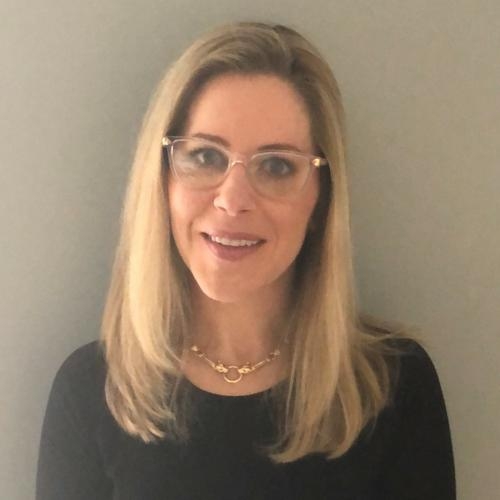

Susan Winograd, PT, owns and operates a private Pelvic Health and
Wellness practice in Boca Raton, Florida called Pelvicore Rehab LLC.
She specializes in Woman's Health, Men’s Health issues, and
Pre and Postnatal Care.
She has earned a Scar Release therapy Certification from Acumed
and is certified in the Wurn Technique and Clear Passage Approach.
Susan earned a masters degree from the College of Staten Island in
1998. In her 22 years of clinical experience she has gained extensive
knowledge in the treatment of various populations such as orthopedics,
manual therapy, geriatrics, pediatrics and men/women's pelvic dysfunction,
and prenatal/postpartum care.
She has continued her post graduate educate through seminars with
The Herman and Wallace Institute, MPS Scar Release Therapy, Myofascial
Release, The institute for Birth Healing, Clear Passage Therapies, and is pursuing education in Cranial Sacral therapy with the Upledger Institute
and Total Body Balancing with the D’Ambrogio Institute.
Susan enjoys teaching workshops throughout South Florida on pelvic
health and wellness related topics.
Her hands-on treatment approach of treating the whole person has
often led her to discover the primary or contributing cause of pain,
dysfunction, or imbalance was pelvic floor related.
Her passion and commitment now is treating, healing, and educating
her patients and healthcare providers with pelvic floor dysfunction using a
whole body approach to relieve pain, restore optimal function, and
improve quality of life.
She is committed to providing the highest quality of individualized
that care that every patient deserves.
Topic: The Fourth Trimester: Postpartum Healing and Recovery - [View Abstract]
Topic: The Pelvic Floor and the Core; A Dynamic Duo - [View Abstract]
The third trimester is an exciting time for moms. There is much attention placed on her with the excitement and preparation of an upcoming birth. In the fourth trimester, the 12 weeks that follow birth, we often see this attention transition to focus on the newborns' needs by healthcare practitioners, family, friends, and of course by the mom. It is important to recognize that this is a critical time for mothers. They are struggling with sleeplessness, adapting emotionally and are in the active recovery phase of healing physically. In France, Sweden and other parts of the world, the healthcare system pays much closer attention to mom’s well being after birth. In many of these countries being assessed and treated by a pelvic health physical therapist is the standard of care. The American College of Obstetrics and Gynecology (ACOG) recently came out with recommendations for improved focus on maternal health. This includes emotional well-being, health maintenance, sexuality, and physical therapy as the standard of care and practice. We are still behind many other countries in maternal postpartum care but we are slowly making improvements. Midwives have the important opportunity to spread the awareness that every mom should get the postpartum care they deserve.
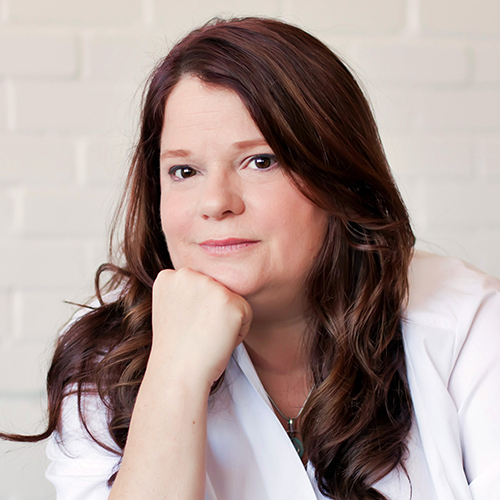

Barbara D. Robertson, IBCLC, has been involved in education for over 34 years. She received a Bachelor’s degree in Elementary Education in 1988 and her Master’s in Education in 1995. Barbara left teaching elementary students in 1995 to raise her two children. Barbara is now the Director of The Breastfeeding Center of Ann Arbor and of the brand new business LactaLearning.
The Breastfeeding Center of Ann Arbor will still continue to serve breast/chestfeeding families and now LactaLearning will be dedicated to all of Barbara’s professional lactation trainings. Barbara has developed two 95 hour professional lactation training, a group training and a completely self study training with Nancy Mohrbacher. Barbara’s idea of creating professional book groups has exploded with her hosting Making More Milk with Lisa Marasco, Supporting Sucking Skills with Cathy Watson Genna, Breastfeeding Answers, 2nd Edition with Nancy Mohrbacher, and new for the fall, Safe Infant Sleep with Dr. James McKenna. Barbara will be hosting a one day online conference in the fall with Lisa Marasco and Cathy Watson Genna using all of her tech savvy skills to make this a one of a kind experience. Barbara is also a speaker for hire on a wide variety of topics including Motivational Interviewing. Barbara volunteered for the United States Lactation Consultation Association as the Director of Professional Development for 4.5 years.
She just retired as Associate Editor for Clinical Lactation, a journal she helped create for USLCA. Barbara has free podcasts, a blog, and Youtube videos which can all be found on her websites lactalearning.com and bfcaa.com. She has written many articles as well. She loves working with parents and babies, helping them with breast/chestfeeding problems in whatever way she can.
Topic: Breastfeeding: Baby’s First Milestone - [View Abstract]
Topic: Clinical Assessment and Management of Low Milk Production - [View Abstract]
Topic: Deconstructing Online Messaging: Ethical Considerations - [View Abstract]
Topic: Milk Sharing and Milk Banking: Building Knowledge for Better Outcomes - [View Abstract]
Topic: The Baby's Not Gaining Weight! Now What? - [View Abstract]
Topic: The Great Nipple Shield Debate - [View Abstract]
Most IBCLCs interact with nipple shields in their work whether a family has brought one in that they are already using or they have suggested using this tool themselves. Are we using them too much or too little? When does it make sense to use this tool? Some lactation consultations say never and some give them out too often. In this session, a brief history of nipple shields will be presented along with the possible reason one might use a nipple shield. The pros and cons of nipple shield use in clinical settings will be debated. Finally, the latest research will be discussed to determine which clinical experiences are grounded in best practice.







